Men's Tuxedos
Men's Tuxedos on Sale
Men's tuxedos are the epitome of formal elegance and have long been the standard attire for black-tie events. The tuxedo, with its distinct style and sophistication, has a rich history that dates back to the late 19th century. This article will explore the history, components, styles, and modern variations of men's tuxedos, as well as provide tips for choosing and wearing them.
History of the Tuxedo
The tuxedo's origins can be traced back to the Victorian era when formal evening wear was a requirement for gentlemen attending high-society events. The term "tuxedo" is believed to have originated from Tuxedo Park, a wealthy residential community in New York where the jacket was popularized by Griswold Lorillard at a formal ball in 1886. The original tuxedo was a tailless black dinner jacket, which was considered a less formal alternative to the tailcoat.
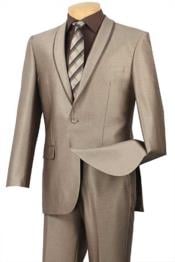 Components of a Tuxedo
A classic men's tuxedo typically consists of several key components:
Components of a Tuxedo
A classic men's tuxedo typically consists of several key components:
Jacket: The tuxedo jacket is usually single-breasted with one button, though double-breasted versions are also common. It features satin or grosgrain lapels, with the shawl and peak lapel styles being the most traditional.
Trousers: Tuxedo trousers are made from the same fabric as the jacket and feature a satin or grosgrain stripe down the side of each leg, aligning with the lapel's fabric.
Shirt: A formal white dress shirt with a wing or turndown collar is worn under the jacket. The shirt often has a pleated or pique front and is fastened with studs instead of buttons.
Bow Tie: A black bow tie, made of silk or another fine fabric, complements the tuxedo. The bow tie should match the lapel's fabric.
Waist Covering: A cummerbund or a low-cut waistcoat is traditionally worn to cover the waist and the shirt's waistband. This element adds to the formal appearance and provides a seamless transition between the shirt and trousers.
Footwear: Black patent leather shoes, such as oxfords or opera pumps, are the appropriate choice for footwear. They should be highly polished and complement the tuxedo's formal aesthetic.
Styles of Tuxedos
Tuxedos come in various styles, each suitable for different occasions and personal preferences:
Classic Black Tuxedo: The quintessential black tuxedo is a timeless choice that exudes elegance and is suitable for the most formal events.
Midnight Blue Tuxedo: A popular alternative to black, midnight blue tuxedos offer a subtle twist on the classic and can appear even darker than black under artificial lighting.
White Dinner Jacket: Often worn in tropical or warm-weather settings, the white dinner jacket paired with black tuxedo trousers offers a sophisticated yet slightly less formal look.
Velvet Tuxedo: For a luxurious and textured appearance, velvet tuxedos are an excellent choice, especially for events during the colder months.
Modern Variations
While traditional tuxedos remain popular, modern variations have emerged to cater to contemporary tastes and styles:
Slim-Fit Tuxedos: Tailored for a more fitted silhouette, slim-fit tuxedos offer a sleek and modern look.
Patterned and Colored Tuxedos: For those looking to make a statement, tuxedos in unique patterns or bold colors can add a personal touch to formal attire.
Casual Tuxedos: Tuxedos with less structured jackets, softer fabrics, or even without a tie can create a more relaxed yet still refined look.
Choosing and Wearing a Tuxedo
When selecting a tuxedo, consider the following tips to ensure a perfect fit and appropriate style:
Fit: Ensure that the jacket and trousers fit well, with the jacket sleeves ending just above the wrist and the trousers breaking slightly on the shoe.
Occasion: Choose a tuxedo style that matches the formality and theme of the event. Classic black is always a safe choice, while variations can be considered for less formal or themed events.
Accessories: Select accessories that complement the tuxedo, such as a pocket square, cufflinks, and formal dress socks. Keep accessories minimal to maintain the tuxedo's elegance.
Grooming: Complete the look with well-groomed hair, a clean shave or neatly trimmed facial hair, and a subtle fragrance.
Tuxedos are the pinnacle of formal menswear, embodying elegance, sophistication, and timeless style. While the classic black tuxedo remains a staple in formal attire, there are various types of tuxedos available to suit different occasions, preferences, and personal styles. This article explores the different types of tuxedos, their unique characteristics, and the occasions they are best suited for.
1. Classic Black Tuxedo
The classic black tuxedo is the quintessential choice for formal events, such as black-tie weddings, galas, and opera nights. It typically features a single-breasted jacket with one button, satin or grosgrain lapels (usually peak or shawl), and matching trousers with a satin stripe down the side. The classic black tuxedo exudes a sense of tradition and is a timeless choice that never goes out of style.
2. Midnight Blue Tuxedo
The midnight blue tuxedo is a stylish alternative to the classic black. Under artificial lighting, midnight blue can appear even darker than black, providing a unique and sophisticated look. It shares the same features as the classic black tuxedo but offers a subtle hint of color that stands out in a sea of black tuxedos.
3. White Dinner Jacket
The white dinner jacket is a popular choice for warm-weather formal events, such as summer weddings or formal events in tropical locations. It is typically worn with black tuxedo trousers, a white dress shirt, and a black bow tie. The contrast between the white jacket and black trousers creates a striking and elegant look.
4. Velvet Tuxedo
Velvet tuxedos are a luxurious option that adds texture and depth to formal attire. They are often worn in colder months and are available in various colors, including classic black, deep navy, rich burgundy, and emerald green. Velvet tuxedos are perfect for making a bold statement at formal events.
5. Double-Breasted Tuxedo
The double-breasted tuxedo features a jacket with two rows of buttons and a more pronounced overlap of fabric. This style is more formal and traditional than the single-breasted tuxedo and is best suited for men with a taller and slimmer frame, as it can add bulk to the midsection.
6. Patterned Tuxedo
Patterned tuxedos, such as those with stripes, checks, or floral designs, offer a modern twist on traditional formalwear. These tuxedos are best suited for fashion-forward individuals who want to make a statement and stand out from the crowd. Patterned tuxedos are ideal for less traditional formal events or creative black-tie occasions.
7. Shawl Collar Tuxedo
The shawl collar tuxedo features a rounded, continuous lapel that wraps around the neck. This style is considered more relaxed and less formal than the peak lapel but still offers a classic and elegant look. Shawl collar tuxedos are often chosen for their smooth and streamlined appearance.
8. Peak Lapel Tuxedo
The peak lapel tuxedo is characterized by lapels that point upwards towards the shoulders. This style is more formal and traditional than the shawl collar and is often seen in classic and timeless tuxedo designs. Peak lapel tuxedos are a popular choice for weddings and formal black-tie events.
9. Notch Lapel Tuxedo
The notch lapel tuxedo features a lapel with a small notch where the collar meets the lapel. While this style is more commonly found in business suits, it has made its way into some modern tuxedo designs. Notch lapel tuxedos are considered less formal and are suitable for semi-formal events.
10. Colored Tuxedo
Colored tuxedos, such as those in burgundy, green, or even pastel shades, offer a playful and modern take on traditional formalwear. These tuxedos are perfect for making a bold fashion statement and are often worn at less conventional formal events, such as themed weddings or fashion-forward galas.
11. Slim-Fit Tuxedo
Slim-fit tuxedos are tailored to provide a more fitted and modern silhouette. This style is ideal for men who prefer a sleek and contemporary look. Slim-fit tuxedos are often chosen by younger individuals or those looking for a more fashion-forward approach to formalwear.
12. Bespoke Tuxedo
Bespoke tuxedos are custom-made to fit the individual's exact measurements and preferences. This option allows for complete personalization, from the choice of fabric and lapel style to the fit and detailing. Bespoke tuxedos are the epitome of luxury and are perfect for those seeking a one-of-a-kind formal ensemble.
Next comes the men's tuxedo pants. They should be straightforward and perfectly match the tuxedo. This means that the color should match and both the pants and tuxedo should be made of the same material. Some pants have stripes along the sides that are of the same material as the jacket's lapels, often satin. The pants should be high-waisted so that if you wear any waist covering, whether it be a waistcoat or cummerbund, it can fully cover the waist. It is important to wear suspenders since the pants should not have belt loops. The dinner suit trousers are minimalistic since the tuxedo jacket is the centerpiece of the whole outfit. They usually do not have cuffs, and the pockets are often vertical slits at the back end of the braid. It is your choice to select a pleated or flat front.
There are two traditional waist coverings that are acceptable in men's tuxedo style: a formal waistcoat or a cummerbund. Though they are traditional styles, they are optional, and you can still rock the tuxedo style without them. The waistcoat is the classic option and differs from the vest in a three-piece suit. Unlike those vests, the cut of the waistcoat is low and wide, showing the front of the formal shirt you wear underneath. It also has a small set of shawl lapels, and some of them are even backless, fastened with a buckled or buttoning strap at the back. As with the pants, the vests are also made of the same material as the jacket. They are available in both single-breasted and double-breasted styles.
A cummerbund is essentially a pleated sash worn horizontally around the waist. They are made from the same material as the jacket's lapel, whether it be satin or silk. The pleats face upward, and modern styles have small pockets hidden on the inside. Whichever option you choose, make sure it hides the waistband of the pants you are wearing. If you get a low-priced one, chances are that it will be colored. But note that black is the standard color for this garment. If you get a high-quality one, it will include small fabric tabs or loops provided to attach it to the buttons on the trousers.
The main function of the vest or cummerbund is to cover the bit of the dress shirt that may otherwise show below the last jacket button. If your jacket and pants are well-fitted and the event you are attending does not require it, you can omit this addition.
Pocket squares are also an optional addition, and if chosen to wear, they should always be worn with men's tuxedos. A crisp white pocket square is the best option.
The last thing needed to complete the men's tuxedo look is the right kind of shoes. You have two basic style options: formal pumps and black Oxford dress shoes. Formal pumps are made from leather and have a black grosgrain ribbon at the top. They are the ideal pick for men's tuxedos and properly complement the look. They are not prevalent among common people since they are expensive and have only a single purpose and cannot be worn in normal circumstances.
If formal pumps are not your style, a less expensive pick is a pair of Oxfords. There are many shoe styles that are accepted nowadays as a good complement for tuxedo styles. Styles like whole-cut balmoral, plain-toe balmoral, and plain-toe balmoral are acceptable. It is better to go with well-polished black shoes that are formal. Casual shoes like wingtips and brogues should never be worn with men's tuxedos. As for socks, thin black socks are the best.
Another major thing to note is the fabric of the men's tuxedos. It is best to go with high-quality woolen cloth. Dark colors like navy or midnight blue give a rich feel. Plaid jackets may look good for formal black-tie events, but you might not be able to wear them to other events. If you are not into solid colors, textured fabrics are available, which gives a nice modern look. You may see white or ivory dinner jackets, but this style is better for summer events like beach weddings since the sun complements the lighter colors more. Dark dinner suits are evening wear and not worn in the mornings.
You can mix and match your men's tuxedos with other shirts and trousers, but make sure not to do it often. The most important thing is that while wearing it as a whole suit, the jacket and trousers should match perfectly. If you use the jacket often, there is a possibility that it wears too much and does not match the sheen of the trousers, and the outfit looks shabby. It is also important that you do not dry clean it often, but airing it out and brushing it often may be a good tactic for maintenance.
Lastly, if you are thinking of purchasing men's tuxedos, it is good to know some basic details. As said before, if you are buying your first tuxedo (for most men, one is more than enough), it is advisable to get a black tuxedo since it is a classic style and rarely goes wrong. It is always better to get your own tuxedo rather than rent one. This is because renting one will not be of good quality, and chances are that the fit is not right. But if you cannot afford one because, let's accept it, men's tuxedos are somewhat expensive and cannot help but rent one, then there are many websites that rent it according to your body style. Also, remember to wear a real bow tie because there are a lot of phony ones in the market. Knotting a bow tie is not that hard, and if you don't know how to, it is not late to learn. If you are attending a formal event, make sure that your shirt has French cuffs, especially if you wear a plain front tuxedo shirt. Mostly all tuxedo shirts have French cuffs.
All this may look complicated, but it is really simple if you know the basics. Men's tuxedos are classic wears, and you can rock the outfit without much hassle.
Men's tuxedos are a symbol of timeless elegance and formality. Whether opting for a classic black tuxedo or exploring modern variations, the key to wearing a tuxedo is in the details and the fit. By understanding the components, styles, and proper etiquette of tuxedo attire, any man can confidently don a tuxedo for his next formal event and make a lasting impression.





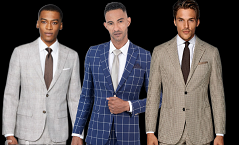

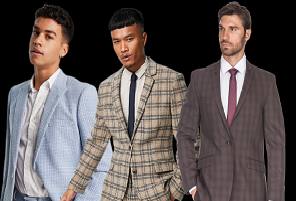





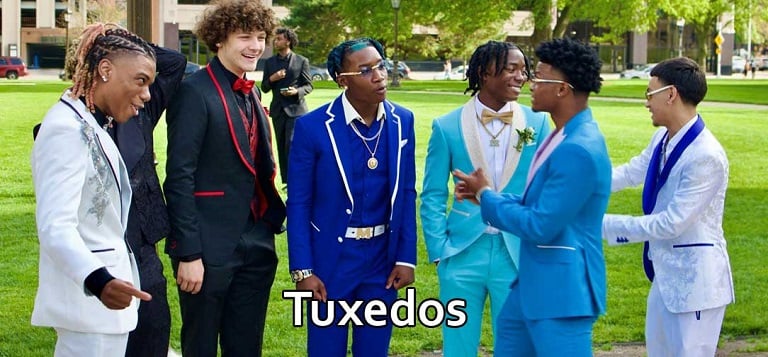
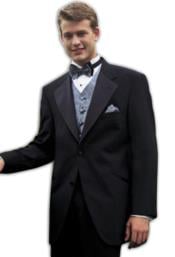
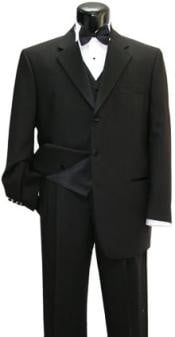
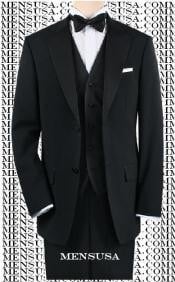
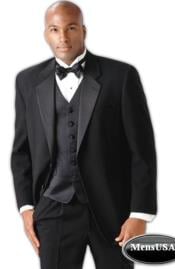
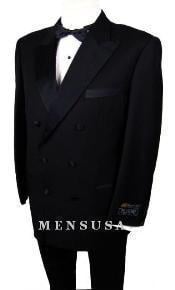
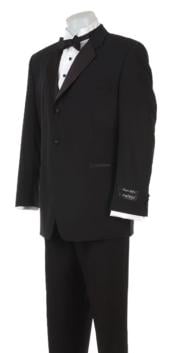
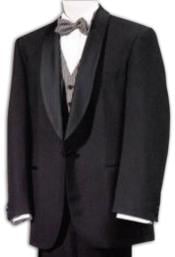
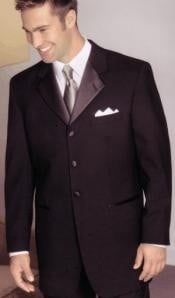
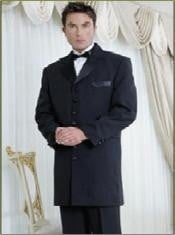
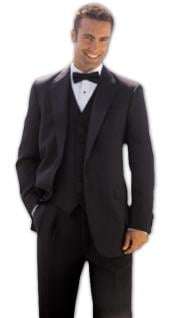
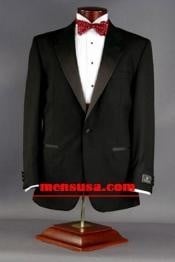
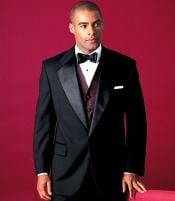
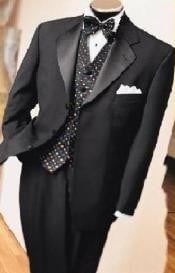
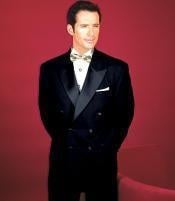
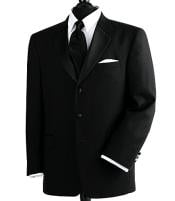

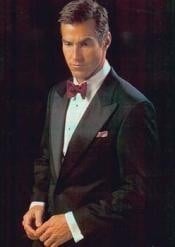
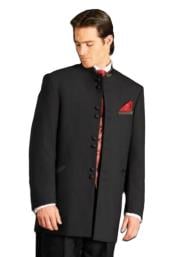
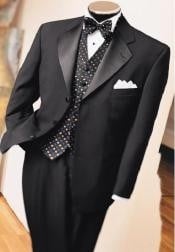
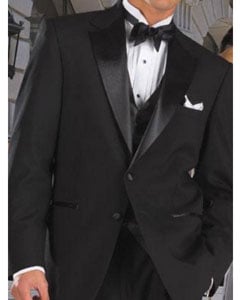
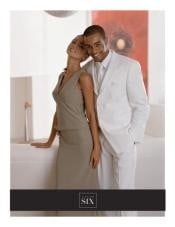
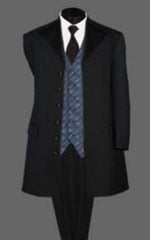
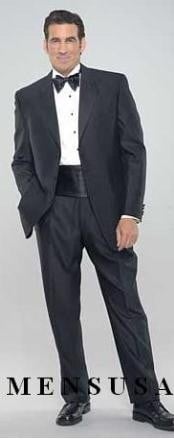
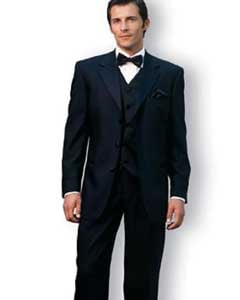
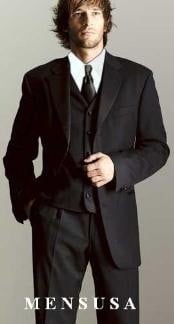
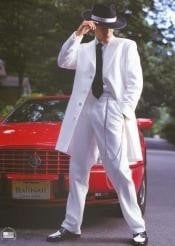
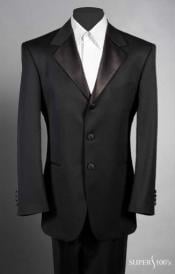
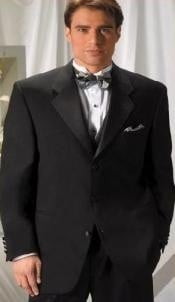
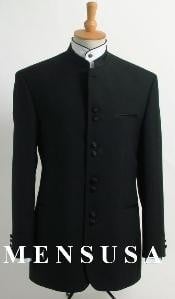
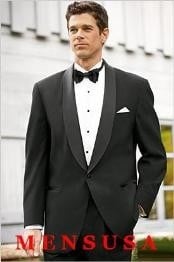
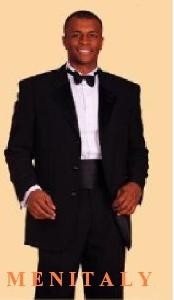
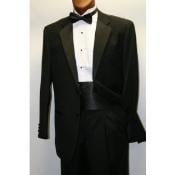
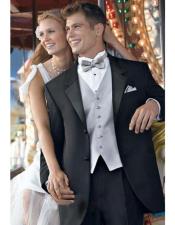
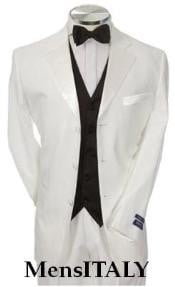
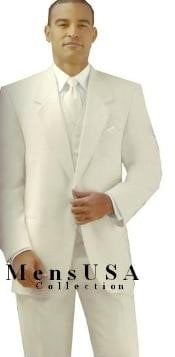
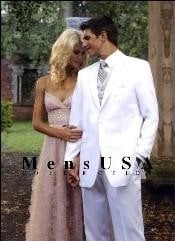
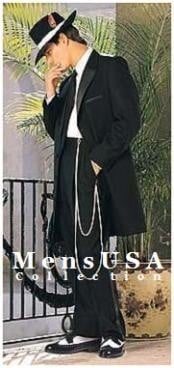
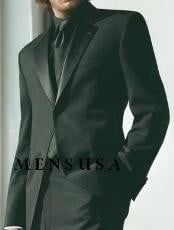
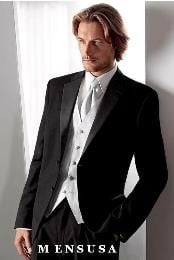
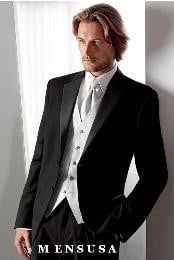
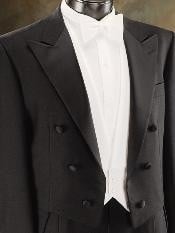
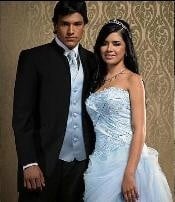
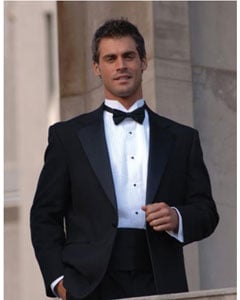
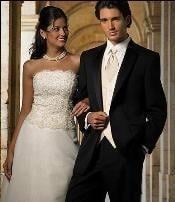
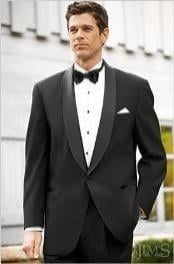
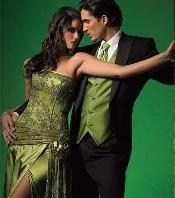
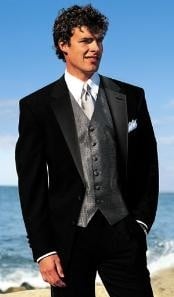
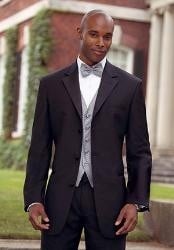
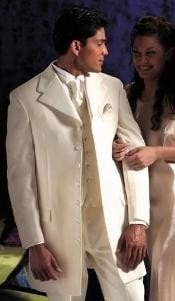
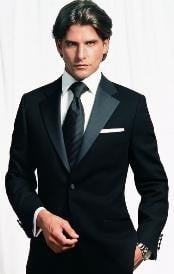
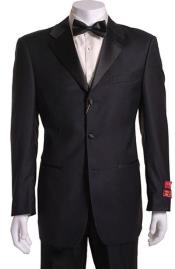
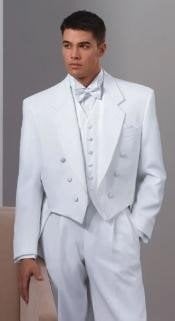
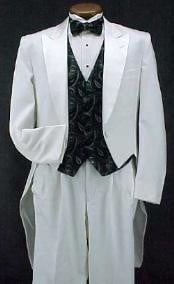
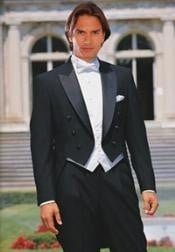
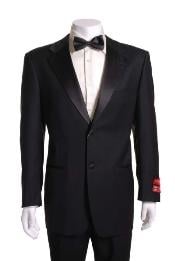
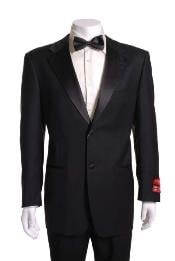
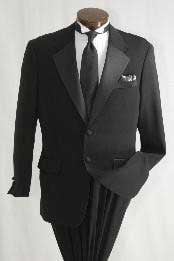

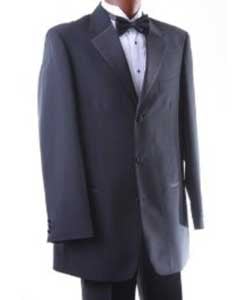
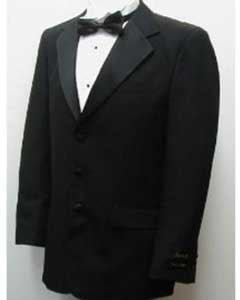
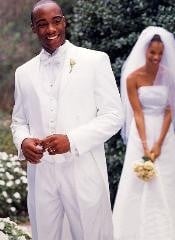
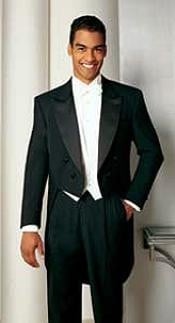
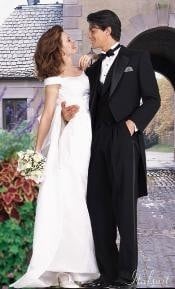
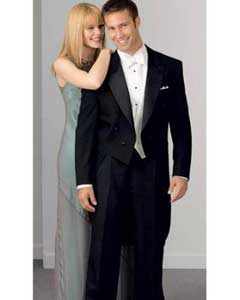
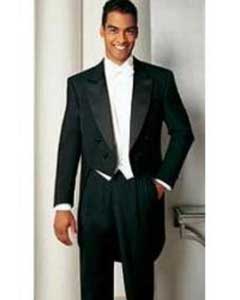
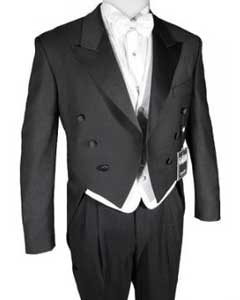
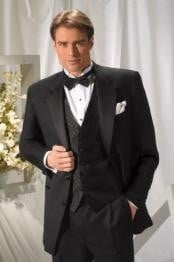
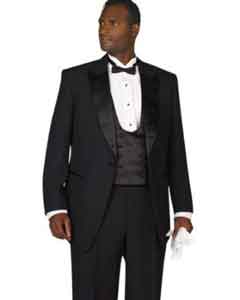
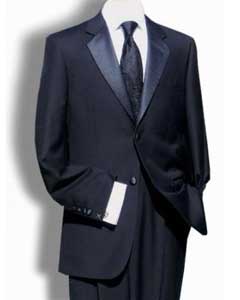
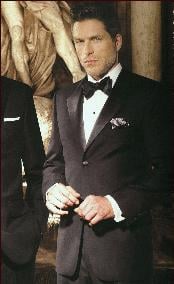
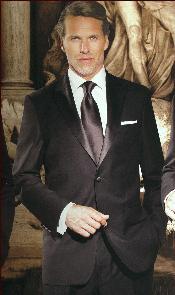
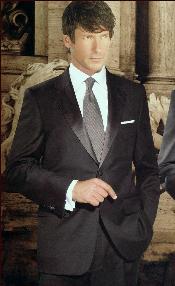
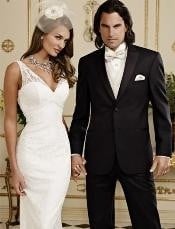
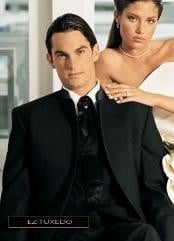
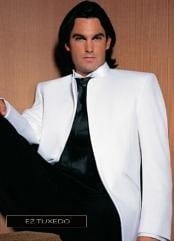
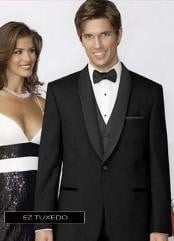
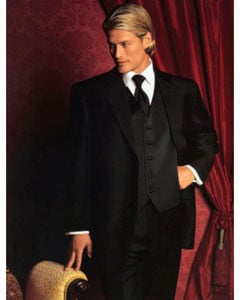
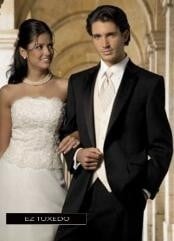
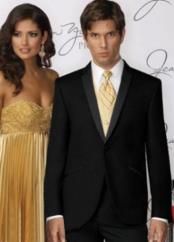
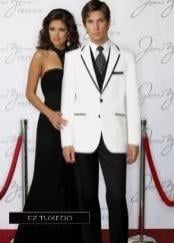
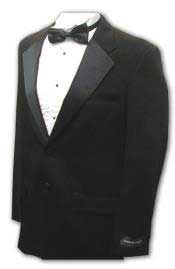
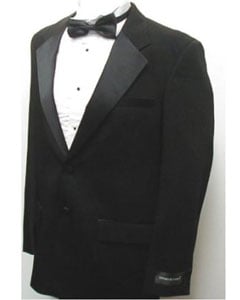
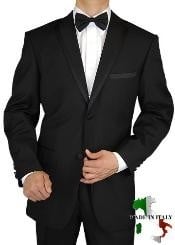
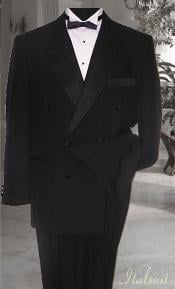
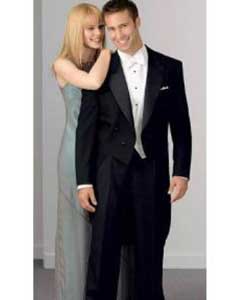
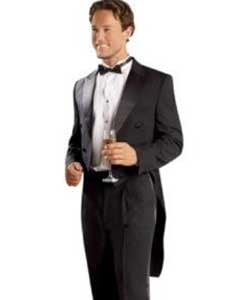
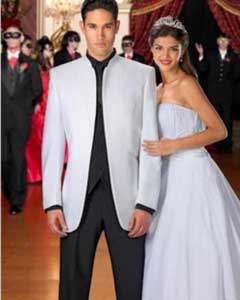
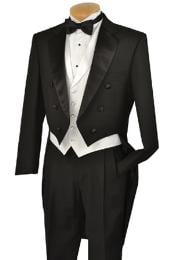
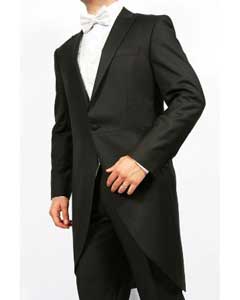
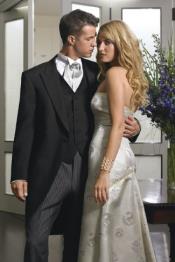
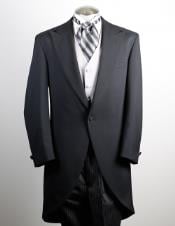
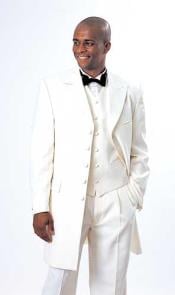
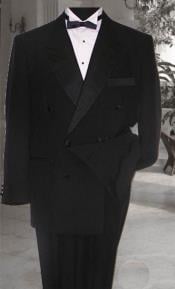
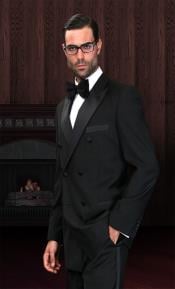
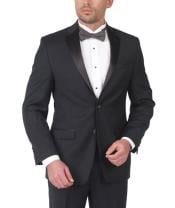
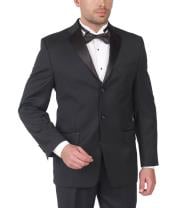
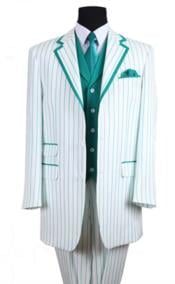
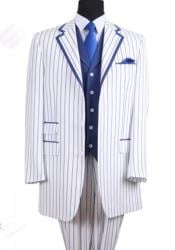
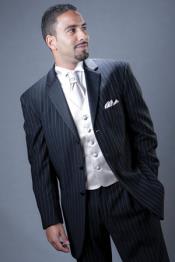
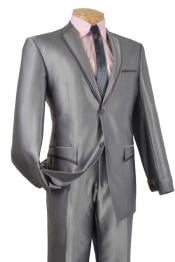
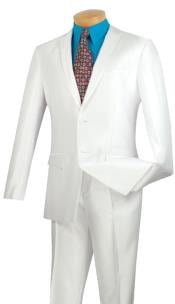
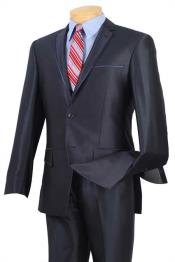
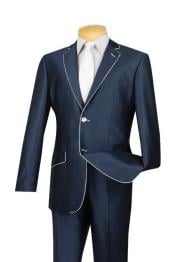
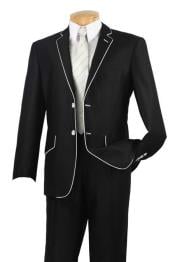
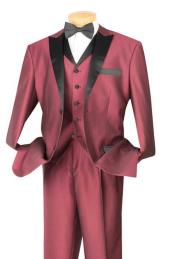
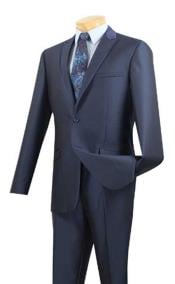
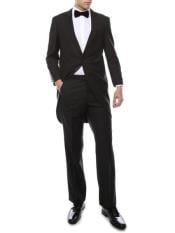
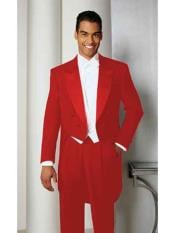
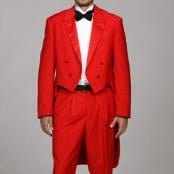
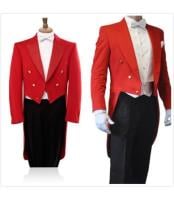
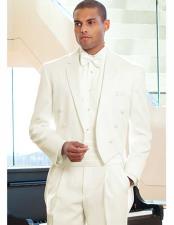
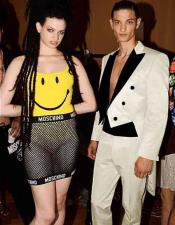
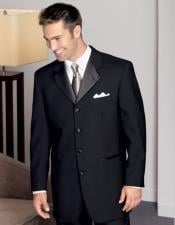
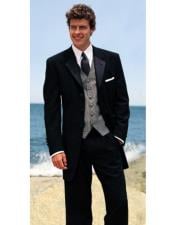
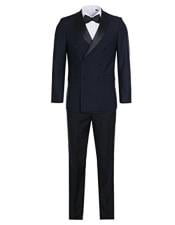
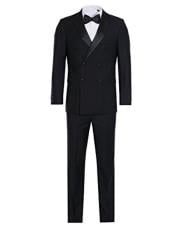
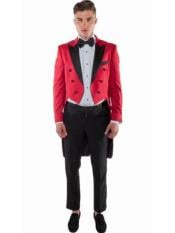






.jpg)
.jpg)
